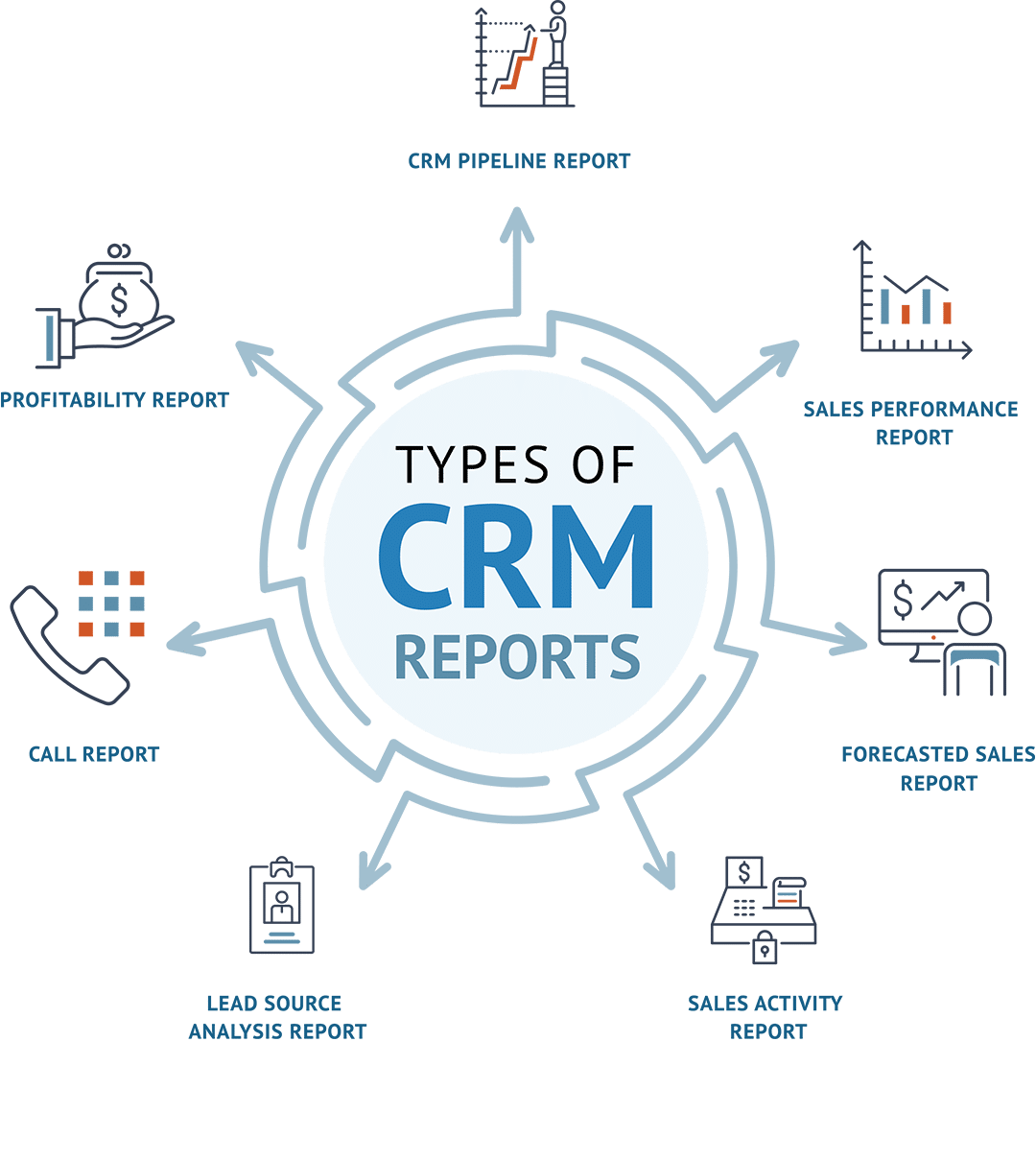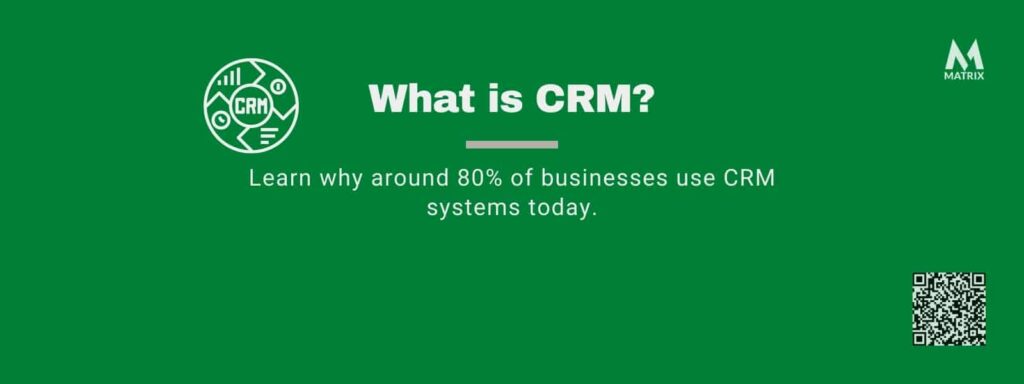If you are not running a CRM platform, maybe what is a CRM platform missed you.
The article is about how and what is CRM is the customer relationship management system. It is a beginner’s guide to customer relationship management.
The acronym CRM stands for customer relationship management, which means that CRM software tracks all your company’s interactions with its customers.
Introduction to what is CRM?
Here are some things you ought to know about CRM- what it can do for your company, the benefits of CRM systems, why CRM is important for business success, and more!
It’s hard to keep track of all the interactions you have with your customers.
CRM software is a customer relationship management system that allows organizations to manage their customers’ interactions, communications, and transactions.
CRM software can record who each customer is, their interactions with the company, and what kinds of issues they’re facing (and how your CRM system can help them).
You understand that everyone in your organization has full access to valuable information about your customers this way, leading to higher morale and productivity levels throughout the entire company.
When CRM software records all the interactions between organizations and their customers, it also keeps track of those communications, such as when calls start and end times or email open/close times.
Your CRM system will keep an accurate track of all those individual interactions, making it easier to monitor the status of different projects and other aspects of your CRM system.
In addition, CRM software lets organizations link their CRM data with other relevant sources such as accounting software, making so that customer information is automatically logged in when you create new contacts or enter in new transactions.
This saves CRM users time!
What is CRM?

CRM stands for customer relationship management. It allows businesses to manage their customers’ interactions, communications, and transactions.
- CRM is important for business success
- CRM is capable of doing many things for your organization
Using CRM software can help your company better understand its customers. By using CRM, you can provide more accurate information about each of your customers, which leads to higher levels of customer satisfaction throughout the entire process!
You’ll also be able to keep track of all the interactions that take place between organizations and their clients with CRM, which means you’ll have easier time monitoring projects or other aspects of your business as well.
What is CRM? CRM software is a system that helps businesses manage, organize and utilize customer relationships.
It facilitates the management of contacts with customers by categorizing them according to their needs and needs. CRM also helps you generate reports for future analysis and plan marketing or business strategies as per your customer’s requirements.
The CRM platform is the foundation on which the software is built. It provides a structured and customizable data model or focuses on the interaction between the customers and the company.
It provides a system that stores customer information so that any staff member across departments can easily access it.
What is CRM marketing?
CRM marketing is a term that encompasses all the activities and strategies undertaken to increase customer reach.
This includes things like:
- analyzing customer interactions,
- leveraging them for different CRM software solutions,
- maximizing their value through CRM tools, and more!
A CRM system can provide insight into the relationship between your company and its customers, so you can develop a better strategy to reach out to them when necessary.
Benefits of CRM Software – Knowing your customers better

There are several benefits to using CRM, including better understanding your customers’ behaviors and ikes to better and dislikes about what they’re buying from you.
Since there are many ways that people can engage with your business, both through email or on social media, you will want to use CRM software to track everything that happens between them- whether it is complaints or questions that were asked about certain likes to things products.
The most important benefit of using a CRM system is that it helps retain existing customers and thus increases customer value.
In addition, the CRM platform serves as a marketing tool for acquiring new customers through social media channels or with targeted messages.
Another great benefit is that CRM systems save time since all the information about the customer is stored in one place, so there’s no need to do double work by looking around different files to get basic information about someone.
There are some benefits of CRM software that you can expect to find, which includes:
- The CRM system is designed to support work efficiency and, as a result, reduces the time employees spend on mundane tasks.
- The CRM system helps in building customer loyalty and boosts customer satisfaction levels.
- The CRM system helps meet industry standards for email marketing compliance, such as the CAN-SPAM Act and GDPR.
CRM software provides IT staff, with the information they need to monitor and respond to service outages quickly.
The increased ability to manage and analyze customer data due to CRM systems lets businesses better know their customers.
With CRM, you can also use marketing automation software to help you reach out to your customers when they are most likely to be receptive, all while maintaining good relations with them.
CRM allows businesses to streamline how they interact with their customers.
While CRM does not eliminate the need for interactions between companies and their customers, it makes managing those transactions much easier.
CRM is an integral part of any company that wants a successful business.
What is CRM and CRM best practices
It is important to be aware of the importance of CRM for success in your business. Here are some CRM best practices you ought to know:
- Keep track of customer interactions.
- Perform enough analysis on customer data to make good decisions about how to attract and retain them.
- Opt for a marketing automation software that will help you reach out to customers when they are most likely to be receptive.
- Make sure your CRM system can offer you real-time insights so that you can act accordingly.
Customer relationship management (CRM) is a system used by organizations to manage their customers’ interactions, communications, and transactions.
History of CRM

CRM has been around for more than two decades. Still, it started to gain popularity only in the 1990s as Internet usage grew and companies realized how web technology could help them build better relationships with their customers.
With CRM systems, it becomes much easier to organize sales leads into a solid sales pipeline that helps you convert those leads into sales opportunities—and then turn those opportunities into real sales.
CRM can be a stand-alone application or a part of an integrated software package that includes CRM and other functions such as customer support or help desk services, sales force automation, and more.
In big companies, CRM is usually overseen by a chief CRM officer (CCO)—the person responsible for CRM strategy in the organization.
- CRM helps you organize customer data into one system
- CRM systems make it easy to manage different types of customers
- CRM enables businesses to respond faster to their clients
Every business wants to grow its customer base, but with dozens or hundreds of customers—and even more, if they’re online stores—it doesn’t always happen easily or at all.
It takes too much time and effort for your staff to deal with every single customer’s needs; no matter how hard they try, some customers will inevitably be unhappy most of the time.
CRM software makes it easier for your business to manage its customers—and meet their needs.
CRM also gives you an edge over other businesses in the same industry because customers will see that you’re willing to go the extra mile by providing them with excellent customer service.
- CRM updates in real-time
- CRM can help you save both time and money
- CRM helps companies stay competitive
The biggest benefit of CRM is how it improves your relationships with customers.
Every interaction between a business and its clients is stored in the system, giving sales reps access to useful information that they can use to understand each client better—and then provide them with products or services that are suitable for them, increasing satisfaction levels even more.
CRM can also help you streamline your business and save money in the long run by allowing you to organize and store data more efficiently and quickly than before—and make better decisions thanks to CRM’s real-time information about your customers or prospects.
- CRM is a web-based system
- CRM helps you identify problems/opportunities in your existing relationships with customers
- CRM gives better customer service
The percentage of companies using CRM has gone up significantly over the years; it’s estimated that around 80% of businesses use CRM systems today.
That number will likely grow in the coming decades as Internet usage becomes even more popular among consumers. Whether they’re brick-and-mortar companies or online stores, CRM can help businesses do a better job at serving their customers.
CRM helps you organize your customer relationships into a solid sales pipeline that makes it easier for you to convert more leads into real sales—and turn more of those opportunities into full-fledged transactions.
CRM also enables you to identify problems and update your marketing strategy accordingly not to alienate existing customers. CRM systems are web-based, which means they’re accessible from anywhere without the need for any special equipment or software.
This means that CRM software will record phone calls, emails, meetings, and other interactions between a business and a customer.
After a call or meeting ends, CRM software will keep a record of it so that there’s an accurate account of what was said or agreed upon in the exchange.
For example, if you met with a customer to discuss his order problems last week, CRM software will remind you about those issues next time he contacts your organization (assuming he does).
By using CRM software, organizations get a more holistic view of their customers, which leads to better customer service.
You understand that everyone in your organization has full access to valuable information about your customers this way, leading to higher morale and productivity levels throughout the entire company.
In addition, CRM software lets organizations link their CRM data with other relevant sources such as accounting software making.
Customer information is automatically logged in when you create new contacts or enter in new transactions. This saves CRM users time!
Both parties can benefit when you use CRM software to manage your customers’ interactions with your business.
Customers will be more satisfied with their interactions since they always have easy access to the records of past communications between them and your organization (assuming you give them access).
How do you sell a CRM system to the CEO?

One of the most important things for your CRM system is to convince the CEO that it will help the company become more successful. You need to show them how CRM can make jobs easier, lead to better customer service, and help the organization grow in size and success.
You can show your CRM system will make jobs easier by pointing out how it can allow employees to access the information they need about customers at any time, which will lead to higher levels of productivity.
You also want to be sure that you tell the CEO that CRM is great for customer service since they give organizations a way of recording all interactions between companies and their customers throughout history. This means that when customers contact companies about an issue.
How does a CRM platform work?
The CRM platform is the foundation on which the software is built. It provides a structured and customizable data model or focuses on the interaction between the customers and the company. It provides a system that stores customer information to be easily accessed by any staff member across departments.
Is CRM important for business success?

Yes, CRM is incredibly important for business success because they help companies retain their current customers and attract new ones.
This ultimately leads to greater revenue generation, which will lead to success. With CRM systems, companies have a more holistic picture of their customers and offer them personalized services.
How do small businesses use CRM?
Small businesses that do not have the resources of big businesses can use CRM for their business.
This CRM is accessible and affordable, and it also helps them manage their customers and engage with them. CRM software helps small businesses to achieve their goals and be successful.
Small businesses can use CRM to maximize customer satisfaction and increase profit margins.
CRM enables small businesses to understand what features customers want and how these features will benefit the consumers.
It also allows the small business owner to invest time on specific projects and improve company processes. Small businesses can use CRM to generate reports about customer service and product performance.
Sharpspring CRM and marketing automation is about one-tenth the cost of any of the top 5 CRM platforms. Get a demo here.
Customer Relationship Management is about the customer

Customer Relationship Management is a type of software that helps businesses to manage their customers. They allow organizations to manage their customers’ interactions with their brands.
This system gathers data on each customer by categorizing all of the channels that they interact with your company on- such as phone calls or emails.
This, in turn, creates a customer profile for every single one of them. This way, you’re able to see just how many repeat customers you have, the products and services they purchase regularly, and so on.
Since CRM is based around managing your customers, it’s not just about what they buy but also how happy they were with the experience and what they would like to see in the future. So, these systems can do another thing for your business: gather feedback from your customers- taking into account all of the questions they asked and everything they requested in their emails.
Why does CRM matter?
CRM plays a vital role in the success of any organization by allowing them to keep track of what each customer wants and needs.
With this data, you can develop more personalized products and services and better strategies on how to attract new clients, which will turn them into repeat buyers.
Ultimately, this will increase sales and revenue for your business while reducing the number of customer complaints and turnover rates.
How do I get started with CRM?

CRM works by having different channels or categories that your customers fall under, such as in-person or online. It then takes that into account when looking at your company’s data to see the effectiveness of each one and how it impacts sales.
This way, you will know which channels need to be improved upon to attract different types of customers.
Getting started with CRM is relatively easy.
You would first need to identify your customer’s needs and then design a CRM system that caters to those needs.
Furthermore, CRM should be designed in such a manner as to improve customer relations, retention, and loyalty. The CRM should be simple and interactive enough for the customers to use it easily and efficiently.
CRM design is not limited to the CRM vendor; the client company may participate in CRM design, but they can also hire expert CRM designers.
The CRM system should encompass all the processes of acquiring, retaining, and managing a customer.
The following are features where CRM benefits a small business:
- Sales
- Marketing
- Support and service
- The customer
- Data management
- Lead scoring
- Task Management
- Email integration
- Mobile accessibility
Why CRM is important for business success
Customer Relationship Management (CRM) will improve client retention, increase customer satisfaction and boost sales productivity.
It will also help you understand your customers’ needs better, which would result in increased profitability and the long-term value of your business.
Your relationships with your customers would be strong enough to deter them from moving to more competitive products or businesses.
CRM can enhance communication with current clients but also help identify leads for additional sales. CRM enables businesses to automate time-consuming tasks such as marketing and customer service by integrating these functions into one platform.
CRM can generally be divided into five components that address different phases of the customer life cycle:
- Acquisition
- Management
- Retention
- Tracking
- Reporting
For this reason, a CRM must comprise multiple components that address each phase of a customer’s life cycle, and these phases are acquisition, retention, management, tracking, and reporting.
Acquisition:
This involves identifying customers for your products or services according to their needs and buying criteria and welcoming them as valued customers by offering incentives such as discounts or offers.
This phase also includes building awareness about your product or service through offline and online marketing techniques.
The CRM should have tools that help CRM users identify existing customers as well as prospective ones. CRM should also have the ability to share information between acquisition tools and CRM tools.
Retention:
This phase involves retaining customer loyalty by understanding their needs, delivering differentiated value through better service, communication, and sharing of knowledge.
CRM should not only track what your customer is doing, but it should also guide them towards related products or services that may be profitable for the business.
The CRM system should suggest personalized communication channels such as emails or SMS to reach out to specific customers about offers or product updates on their preferred communication channel.
CRM will also help you understand trends in your customer’s behavior so that you can retain them with targeted, relevant communications based on these trends.
CRM should also alert CRM users about the risks of losing a customer through a lack of timely product updates.
CRM can help you analyze your loyal customers to identify key promoters and organize special events such as seminars or conferences specifically for them to retain their loyalty and increase interactions.
Sales Management:
This phase involves reducing churn by resolving customer complaints, placing orders on behalf of customers, managing bill payments and general account queries.
CRM management tools should allow CRM users to view all accounts across different channels from a single interface, track open issues, and generally help within the CRM team.
CRM should also enable monitoring past transactions to gain insights into product performance or sales effectiveness.
Tracking:
CRM uses tracking. This is a tool that can be used for a number of purposes, such as identifying the prospect’s interests and determining their level of needs.
Organizations can then create a proper plan to improve their customer service levels and provide the best customer experience possible.
The benefits of CRM systems can also be found in tracking abilities.
A CRM system might show how long an organization has been without contact with a prospect or lead. It will also show any updates made on leads or prospects, such as when they opened an email, clicked on a link, and so on.
Tracking capabilities allow CRM systems to grow more accurately over time with each new data point that it gets from users and clients.
Reporting:
Reporting capabilities are one of the most valuable features of customer relationship management (CRM) solutions, giving teams an overview of their business performance.
CRM reports help businesses track progress toward their goals, identify problems quickly, operate more efficiently, and sell smarter. The most essential of these reports include sales pipelines, sales performance, sales forecast, sales activities, case logs, and profitability reports.
Additionally, it should have tools that allow CRM to monitor company-specific CRM data for insights into operational effectiveness. CRM should also enable CRM users to efficiently collaborate with other CRM users within the same system or across multiple CRM systems.
Reporting tools provide feedback on customers’ needs so CRM users can continuously improve their business practices through stronger relationships with their customers.
CRM is important for any company because customer satisfaction is essential to long-term business success.
CRM enables client retention via personalized communication channels, which increases the likelihood of current customers purchasing products or services in the future.
CRM also saves companies money by improving operational efficiency with tools like lead scoring and automated workflows.
What are the top 5 CRM platforms?
The top 5 CRM platforms globally are Salesforce, Oracle’s Service Cloud, Microsoft Dynamics CRM, HubSpot CRM, and SAP CRM.
1. Salesforce – Salesforce CRM is the number one CRM platform in the United States and leads the CRM market internationally to boot. Salesforce offers a comprehensive suite of CRM that allows companies to automate time-consuming tasks such as marketing and customer service by integrating these functions into one single platform.
2. Oracle’s Service Cloud – Oracle CRM has traditionally been popular with mid-market organizations for scalability and flexibility. Still, they have become a real threat to Salesforce in the CRM space in recent years, especially when combined with other Oracle CRM products such as CRM SaaS.
3. Microsoft Dynamics CRM – CRM from Microsoft represents a decent option for those who want to avoid Salesforce or Oracle CRM. However, the functionality of CRM from other companies still outstrips those from Microsoft at this time.
CRM are platforms that allow organizations to manage their customers’ interactions, communications, and transactions. CRM software automates time-consuming marketing and customer service tasks by integrating these functions into an easy-to-use platform.
4. HubSpot CRM – HubSpot CRM offers powerful CRM and customer relationship management (CRM) software that you can use to manage all your business functions in one place. You’ll be able to organize your contacts, schedule appointments, store documents, and more, all with HubSpot CRM’s easy-to-use interface and it FREE. Get it here.
5. SAP CRM- CRM from SAP is widely regarded as one of the best enterprise-level CRM solutions available today. Still, CRM from Microsoft and Salesforce has been better at targeting CRM at the mid-market.
What are the best CRM systems for small businesses?
The best CRM system for a small business would be SharpSpring for small businesses that want an all-in-one platform.
This is because of its simplicity, scalability, and ease of use. The pricing plan is about 1/10 the cost of HubSpot.
SharpSpring helps you manage your customer relationships by keeping them informed about the latest developments in its products. Contact management with this method is also really easy!
- SharpSpring CRM and marketing automation
- HubSpot CRM
- Keap CRM
- Pipedrive
- Salesloft
CRM is a software platform that allows organizations to manage their relationships with their customers.
Using CRM, companies can retain existing customers and attract new ones who will ultimately lead to better revenue generation and business success.
FAQ on what is CRM?
What is CRM?
CRM is a customer relationship management system that businesses use to organize and manage. It allows organizations to manage their customers’ interactions, communications, and transactions.
How does CRM software help companies?
It provides client relationship management, and CRM allows organizations to consolidate all of their contacts with clients in one database. Some CRM software takes the form of interactive websites where customer data is accessible by designated company personnel, often through a login-protected “dashboard.” The priority here is that every person within the organization who has customer contact should update CRM information for easy viewing by other personnel involved in direct marketing, service delivery, refill contact, etc.
Why is CRM important for business success?
CRM is important for business success because it allows organizations to manage their customers better and reduce costs, errors, and stress. For example, we recommend that companies segment their customer base into different service levels and offer discounts and promotions targeted at specific groups by using CRM software.
What are the top 5 CRM for small businesses?
Think the CRM is the best for small businesses? Then these CRM systems were made just for you:
(1) SharpSpring CRM
(2) KEAP CRM
(3) HubSpot CRM
(4) Base CRM
(5) Maximizer CRM

